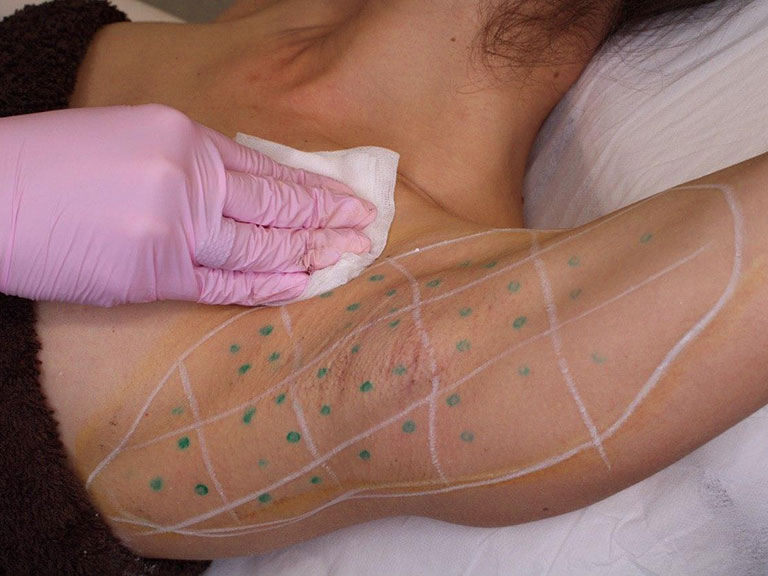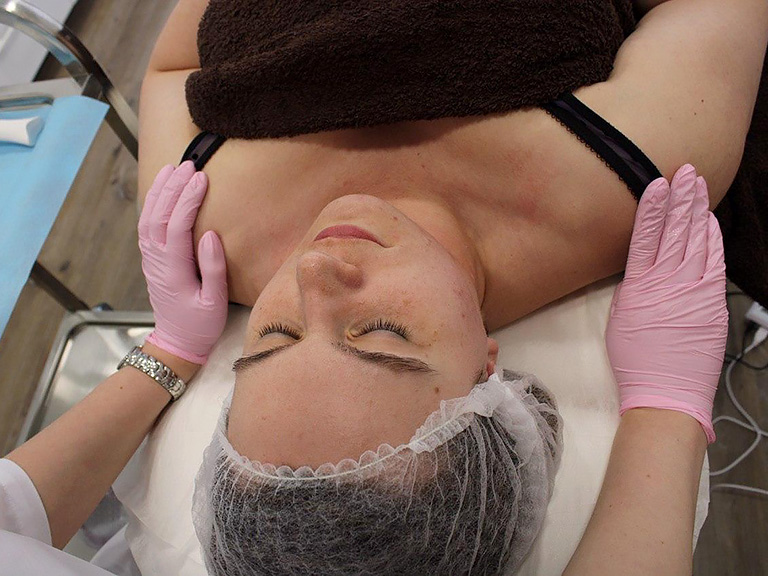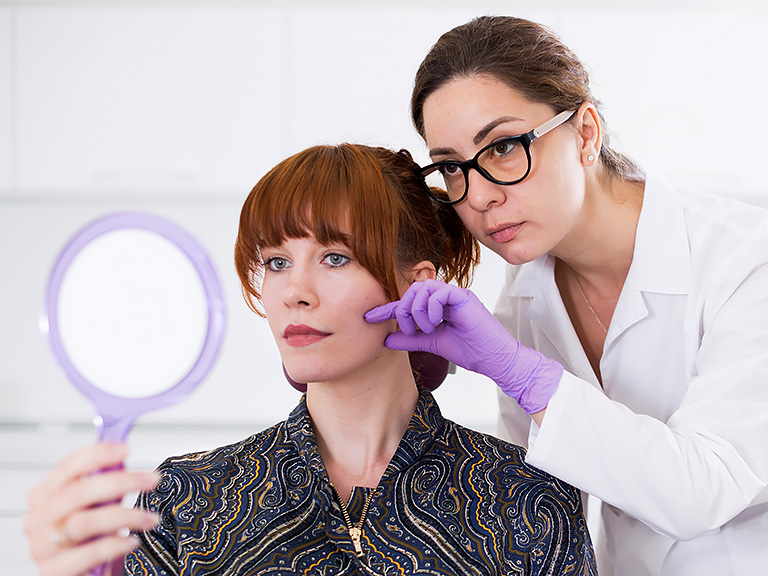Bruxism or «teeth clenching» is often caused by the considerable stress of modern life, also known as «businessman» disease and this is why the problem becomes ever more common. By some estimates, it affects 1 person in 10. Usually, it manifests as very strong tension of the patient’s masticatory muscles, of which the patient may be unaware.
Sleep bruxism is teeth grinding that occurs at night when a person is unable to relax his jaw muscles even during sleep. Usually its detected by dentists, are worn out or chipped teeth and traumas of the adjacent tissues. Those who suffer from bruxism often have heavier square-shaped facial contour.
Bruxism may be caused by:
- emotional stress and tension
- temporomandibular disorders
- abnormal occlusion.
Teeth grinding at night may result in morning headaches and pain in the masseter and temporal muscles region.
How can bruxism be treated?
There are various methods to treat bruxism, such as:
- dental splints
- pharmacological treatment
- cognitive-behaviour therapies
Our study shows that using dental splints is more symptomatic than etiological treatment of bruxism since it helps to protect teeth. The cognitive-behaviour therapies have short-term minor effects such as massage, exercise, yoga, hypnosis and other remedies.
It appears that among medications, such as antidepressants or muscle relaxers, the most effective treatments for bruxism are botulinum toxin injections.
The effectiveness of our treatment method is recognized globally. Botulinum toxin injections relax the masticatory muscles and relieve tension in this area. The drug only affects the muscles that receive the injection and protect temporomandibular joints. It is a safe and almost painless procedure, although occasionally it is performed under local anaesthesia. The procedure only lasts 30 minutes and needs to be repeated every 6-8 months.
At the Mona Lisa Clinic, Dr. Liza Mhitaryan applies exclusive methodology for bruxism treatment. In September 2019 Dr. Liza Mhitaryan presented «Bruxism treatment with botulinum toxin type A» at the 5CC (5 Continent Congress) – a congress for facial and corporal aesthetic medicine – and won the Best Innovation award. Currently, we are providingteaching courses for the certified medical doctors the exclusive method for diagnosing bruxism and its treatment.
The procedures in our clinic includes:
- Consult with the Doctors
- Digital photography
- Orthopantography
- Ultrasound diagnostic of masseter muscles
- Botulinum toxin therapy
- Control with all diagnostic methods after 2 weeks
- Follow-up after 5-6 months.
What are the symptoms of bruxism?
- Headaches and pain in the masseter and temporal muscles region in the morning
- Discomforts, fatigue or stiffness
- Teeth grinding ,clenching
- Teeth hypersensitivity
- Clicking or locking of TMJ
- Muscular hypertrophy
- Tongue or cheek indentation
Our treatment protects oral – facial structures like teeth, jaw muscles and temporomandibular joints from the excessive forces and harmful damage caused by bruxism and improves facial contour.
At the Mona Lisa Clinics in Barcelona and Lloret de Mar, you can receive your first appointment with the doctors and your individual treatment plan of bruxism.



